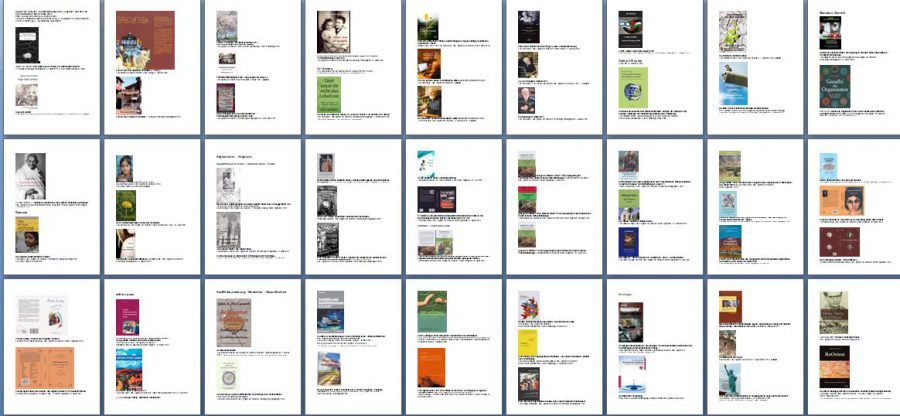
Category Archives: Frieden
Beate Zilversmidt. Memorial
Adam Keller, September 2021
Beate, Me
and the Cancer
Adam in der Memorial-Video-Konferenz
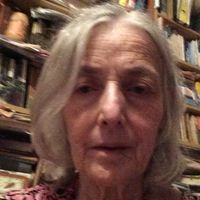
I saw Beate for the first time at an evening hour on February 14, 1986, at a conference hall in the Dutch town of Amersfoort. On the morning of August 6, 2021 I said goodbye forever, knowing I will never ever see her again, at Ichilov Hospital in Tel Aviv. In between these two dates there were thirty five years of a wonderful togetherness, the most happy marriage imaginable. (To be precise, these were thirty five years – and a half. I would not have given up this last half a year, not for any price. This half a year included some of our most wonderful moments.)
Beate was a cancer patient for 21 years out of our 35 years of marriage. The
last fifteen were stage 4 cancer which is the highest. Not many stage 4 cancer
cases survive for 15 years, she was a bit of a medical miracle. Even more
remarkable, for 14 of these 15 years, she was mostly unaffected by the cancer
and could live a normal active life. Indeed, there were whole weeks where I
hardly thought of my wife’s cancer. I remember one evening when we were sitting
in our favorite vegan restaurant in Tel Aviv and eating a very good meal and
feeling happy and relaxed, and she took out of her bag a box with two small
pink pills and took them with a glass of water, and I thought: “Could
anyone looking at her right now guess that they just saw a stage 4 cancer
patient taking chemotherapy?”
Oncologists at Ichilov were actually competing with each other to get Beate as a patient. She was a very interesting case medically, and I think it also gave them a good feeling to have a patient who was doing so well for such a long time. They have so many cases which are much worse and so often meet people who suffer horribly and for whom not much could be done.
Beate’s long survival was partly due to the cancer in her body being a relatively “lazy” one, spreading only slowly. She used to joke about her “roommate” and say “He knows that if he kills me he will die himself, so he is not in a hurry”. But it was not only the relative luck of having a “lazy” cancer. Beate helped that luck by being very critical of the oncologists, not taking anything for granted, refusing treatments which she thought unreasonable, stopping treatment for a time when she felt the side effects increasing and then resuming it when the cancer increased. She called this “The Zig Zag Method”. She always said that many cancer patients die of the treatment rather than the cancer itself.A good friend of ours who died ten years ago was one very clear such case. In Beate’s opinion, dying of chemotherapy was more painful and messy than dying of the cancer itself.
I was present when Beate told an oncologist “No, I will not do this. I think it will do me more harm than good”. And the oncologist said “All right, I rely on your judgement”. I think very few cancer patients – or any kind of patient – get to hear such words from a doctor.
And Beate also made a very big effort to live a healthy life and eat healthy food and take long walks in the night with me. She used all kinds of alternative and complementary methods but was very critical of them too. She used to enter all kinds of websites advertising supposed miracle cures for cancer, look very carefully at what they had to offer and why they said it would work, and she would order only one of a hundred such Miracle Pills on offer on the net – and then try to take a careful look to see if they really had an effect, otherwise they would go to the garbage. Beate made such extensive study of the subject that I think she knew about cancer more than anyone who is not a trained oncologist. She was for years actively participating in an international online network of breast cancer patients, offering useful advice and words of support to others less fortunate than herself. I estimate that at least five of her fifteen years of surviving as a stage 4 cancer patient were due to her own tireless efforts and struggle.
But we always knew that even medical miracles don’t last forever and that even a lazy cancer would eventually get to a vital organ, and that is what happened this year.The cancer got to her lungs.The right lung collapsed completely within a few months and also the left one was affected. Walking any kind of distance became a great effort for Beate. Even so, we continued to have our vegan restaurant evenings. There was the evening when we found the restaurant where we wanted to eat unexpectedly closed, and she suggested that we go to another one, three city blocks away. In her condition that was an enormous distance. I was surprised and asked “Do you think you can make it?” She said “Sure I can”. And she did. Determined, she walked on and on without stopping, refusing to rest on a bench, and eating with great appetite when we got to the other restaurant. For a Stage 4 cancer patient with ruined lungs, that was running the Marathon.
In these final months she was inspired by her very musical daughters and granddaughters and took up playing the piano after a 45 years break. We got a simple electric piano which could be easily ordered and delivered to the house. She could master only a few simple tunes, but did them beautifully every evening. Afterwards we would sit eating watermelon and listening to classical music concerts and recitals on youtube. This continued until our last evening at home.
We live (I must sadly now say “we lived”) on the fourth floor of an old house without an elevator. Every day, she was still able to climb these four stairs. Very slowly, with big effort, but she did. On the day when it was necessary to call an ambulance and get her to the hospital, she still walked the stairs on her own feet. A medic walked behind her, holding an oxygen tube connected to her nose, and she walked slowly down the stairs.
In these last weeks we effectively moved our residence to room 8 of the “Internal Diseases A” section of Ichilov Hospital in Tel Aviv. I stayed with her all the time, only twice taking a taxi home to get a few things and immediately back to Ichilov. Actually, I felt that “home” was not an empty apartment. Home was where Beate was.
Every night I spread a camping mattress beside her bed, put some blankets on it and slept very contentedly at her side. One night I did a very daring and utterly forbidden thing. In the middle of the night we spread the curtains around her bed and I lay in the bed which was big enough for two, for three wonderful hours. We did no more than tenderly holding hands and a bit of caressing, but it felt like a second honeymoon.I crept out long before first light. We reluctantly decided not to risk it again. Being caught in such a flagrant violation of hospital rules might have led to my being altogether expelled from Ichilov.
The oxygen level in Beate’s lungs was dropping to very dangerous levels. With a healthy person, it should be 95%. A level in the 80s is bad but still tolerable. With Beate, even when she was perpetually linked to oxygen, it was sometimes dropping to 72 or 73. Beate devised some breathing exercises which would raise it. They worked. She would lie down quietly and calmly, with the oximeter on her finger, and I saw the figures jump up from 75 to 85 and 90. But it did not last long, and it was a constant effort.
A radiologist came and told Beate there was still one thing the hospital could try. Five radiation treatments on her neck, on five consecutive days, might have stopped a tumor which was pressing down on a major blood vessel – though it would not have helped her ruined lung.
I urged her to try it, it was the only chance left. We spent a whole sleepless night debating it. She was adamant: “No, I will not do it. If I go lying flat on my back in the narrow inhumane tunnel of that radiation machine, unable to do any breathing exercises, I will not come out alive”. In the end she convinced me. In the morning she told the doctors she was rejecting the radiation treatment. Later on, the friendly radiologist came back and admitted that she was right. The proposed treatment had been marginal.at best. Ichilov had suggested it simply because they had nothing better to offer.
Beate’s grandson Sam, who is a fourth year medical student in Holland, read one of our updates from the hospital, and he wrote to Beate “As a medical student and a grandchild, I am very proud of you.”
Every day she was weaker. She could no longer take even one step outside her bed, her legs would not hold her.Beate did not fear death. She very stoically accepted that it was near and inevitable and tried to prepare me for it, having long calm practical conversations and giving concrete advice – very good advice – about what I should do after her death. There was one afternoon when I burst out crying and crying and crying. Her arms were still strong enough to hold me and her hands were caressing my head. I said while still crying “It is easier to start mourning you when you are still here to consolate me”. She said “Exactly so”.
What she did fear was the loss of cognitive ability, loss of who she was. A very real danger when you have low oxygen in your blood. Two days before her death there was a very frightening incident. She was suddenly babbling gibberish and saying nonsense, like asking if the nurse was har grandmother. Then I could see her making a conscious effort to get hold of herself. She declared “I am Beate Keller” and then named, one by one, her children and grandchildren. I helped her by asking questions “Where do we live?” “What were the names of your parents?” “What is the best restaurant on Ibn Gvirol Street?” to which she answered promptly and correctly. Within minutes, she was completely herself again. But there was no guarantee she could do it again if a second such lapse occured. On the following morning – which was to be the last of her life – she told me she wanted to die before that happened.
On the afternoon of that day she had very happy hours with Elja, her son, and Jedida, one of her daughters, who had come especially from Holland after a titanic struggle with the Israeli Kovid bureaucracy. I gave Beate a cup of tea and moved aside to give her children their time with her, and they sat for hours chatting in Dutch.
At about 10.00 that evening Beate asked me to give her a cup of her favorite vegan vanille pudding. She ate it all, smacked her lips, and said “When I have a dry mouth, I prefer pudding to water. Good night!”. These were her last words.
She put her head on the pillow and was asleep within minutes. At some time during the night sleep deepened into unconcosciusness. By the morning she could not be woken, and she had strictly forbidden the doctors to use any kind of resuscitation on her.
I was sitting at her side all the time, but I did not notice the moment when her breathing stopped. At about 9.00 on Friday, August 6 2021, a woman doctor came, examined her and told me she was dead. Then several other doctors came and very warmly expressed their condolences and told me how highly impressed they had been with her.
I was strangely calm and dry-eyed. I had indeed shed my tears when she was still there to consolate me.
The doctors gave me an hour with her, before the hospital staff arrived to deal with the body. I caressed her wonderful hair for the last time, and I told her for the last time that she is the most wonderful woman in the world – though I knew she could no longer hear me. I did not need the whole hour. Beate never liked long goodbyes.
In less than half an hour I told the hospital staff they could come deal with the body, as far as I was concerned.
I knew that that body was no longer Beate. If the Monotheristic religions are right, Beate is now somewhere up in Heaven. If they are wrong, Beate is nowhere – except in my head and my heart, where she will stay until the moment of my own death.
*****************************************
Snapshots from THirty Five years [here missing]
The following is based on words said in the Zoom online memorial to Beate.
https://www.youtube.com/watch?v=S3wxPtbpAuc
How do I sum up in a few minutes thirty five very happy years of a life shared with the most wonderful woman in the world? Let me give some snapshots, in more or less chronological order.
– An international activist conference in the Dutch city of Amersfoort. A Dutch woman gets up to speak. I listen carefully but, I must say, I was not yet in love with her.
– I am in a car, the Dutch woman has offered me a ride. She asks what I will do in Amsterdam and I say I will look for a cheap hotel. She says “No need, you can stay with me”.
– I am in the same car with the same woman six months later, going over the French countryside towards the German border. It is in effect our honeymoon though we are not yet officially married.
– We go into an empty apartment in the Tel Aviv suburb of Holon. There is nothing but an old table and two broken chairs. Beate says: “Here we can build a life”.
– Twenty years later, the same apartment is overcrowded with our furniture and bookshelves and the walls covered with our posters and pictures and newspaper clippings.
– Beate takes a wrong step while helping Palestinian villagers near Jerusalem, and her leg is broken. I go with her in the ambulance to Mukasad Hospital in East Jerusalem.
– Beate says “My leg is healed. I don’t need doctors to get rid of this damn hot plaster. Give me the hammer, I am going to do it myself!”. Afterwards she luxuriates in her first bath for two months.
– We go into an apartment in Jerusalem to meet a three and half years old boy. At first he is very shy, but soon he lets me join him and his toy train on the floor. Beate whispers “Remember, don’t yet tell that you are his father. Leave that to the second meeting”. Half an hour later, Uri tells his mother Rama: “Adam is my friend!”
– We are on the way to Gaza to deliver food. Extreme Right-Wingers block our way, shouting “Leftist traitors!” and one of them tries to grab my bag of supplies. Beate jumps on his back, wildly beating his shoulders and shouting “Leave him alone! Leave him alone!”.
– In a small German town a stall offers nice blue caps with various first names on them. I find one with the name “Beate” and pay the young German woman. She says “Ah, Beate?”. Clearly she is curious about my wife or girlfriend with the German name.
– The time of the Oslo Agreements. In central Tel Aviv opponents of the Rabin government push into a peace demonstration and there is wild confusion. Beate starts shouting “Rabin, Ha’am Itcha” (Rabin, the people are behind you!). Many others join her, and we realize there are many more of us than of them.
– Beate is being operated on, to remove the breast in which cancer was found. The doctor calls me and asks “Are you the husband?” I cry out “Doctor, what went wrong?”. He says “Calm down, I just wanted to tell you it is a complete success.”
– Beate and I take part in a march in central Jerusalem. Activists shout “End the occupation! Make peace!”. Suddenly we hear a far off explosion. An organizer gets an call on his mobile phone and then announces: “A suicide bombing just happened a kilometer from here!’. Confused demonstrators ask “So what do we do now?” and the organizer says “We go on marching, this just shows all the more why we need peace”. Beate says to the others “He is completely right, let’s go on”.
– Uri had refused to join the army and we visit him in the military prison. Beate embraces Uri and he tells her “Don’t worry, I am getting along well with both the prisoners and the guards.”
– A tense nighr at Yasser Arafat’s headquarters in Ramallah. I phone the Israeli media: “If Sharon thinks of sending commandos in here, he should know there are dozens of Israeli citizens right in front of Arafat’s office”. Beate is chatting with very young Palestinian militiamen who speak basic English. A few hours later, the two of us watch the first light over the roofs of Ramallah. The commandos did not come
– We sit at our favorite vegan restaurant, contently eating a good meal. Beate takes two small pink pills with a glass of water. I think “Who could have guessed that this is a cancer patient with metastasis in various parts of her body, taking chemotherapy?”
– Gush Shalom had sent warning letters to IDF officers who had committed acts contrary to international law. I, as the Gush Shalom spokesperson, find myself the target of very hostile media coverage. The phone rings ceaselessly: “God Damn you, leftist traitor!” “Leftist, we are coming for you!” Beate says: “They can know where we live! The phone company just gives our address to anyone who asks! They may be waiting for you downstairs. For the coming week you’re under house arrest, you don’t get out of the front door. We just don’t take chances!” I say:”It is lucky that our cats were moved to my sister’s home in the Galilee. If we still had cats going out every night, I would go crazy with worry.” Beate says: “Cats know how to take care of themselves!”
– Like on many mornings, I wake up at six and listen to Aryeh Golan’s morning news bulletin.I use earphones on my transistor radio in order not to disturb Beate’s sleep. While listening to the news I hang the wet laundry for which I did not have time on the night before. When I get back to bed, Beate half wakes and asks “Was there anything on the news?” I answer “Nothing special, just the usual nastiness.” I stroke her hair and she falls asleep, and I also go back to sleep for a few more hours.
– Beate says “I’m not sure I’ll get to see my children again.” I say “But the Corona Virus limitations will be dropped within a year, and then Dutch people would be able to visit Israel again.” Beate says “I’m not sure I will still be alive by then.” I rush over and hold her tightly. We both say the same thing in the same moment: “However much time we have left, we will make the most of it, we will enjoy it – every day, every single moment!”
– Our restaurant is unexpectedly closed, and Beate suggests another one, three city blocks away. I am astounded and say “But you now get tired so quickly, can you walk that far?”. She says “Yes I can!” and she did, walking determined and not stopping to rest – though at the end she was totally exhausted.
– The Occupation Anniversary. Beate says: “I am quite tired. I don’t know if I can stay until the end”. We arrive anyway at the rally in the square. Beate takes up a sign “Jerusalem – Capital of Two States” and stands together with our friend Rayna. After half an hour she is exhausted and we take a taxi. That was the last demonstration in which Beate took part.
– We install the electronic piano which we ordered. Beate says “I think I can play quite well, considering that I did not touch a piano for 45 years’ ‘. After playing Beate gets up from the piano and goes to the other room, where she puts on the oxygen processor and installs the oxygen tube in her nose. This is called “oxygen glasses”, since you have to wrap the tube around your ears, like glasses. I go to the kitchen and get slices of watermelon. We sit down and eat watermelon and listen to a Chopin recital on Youtube, and then we go to sleep.
– Uri is visiting from Berlin and tells about his work in a computer games company. Beate calls from the kitchen “Adam, I can make pumpkin soup, but I can’t lift this heavy pot”. I take the pot to the room. Uri says “This smells good”. Beate says “It will taste even better. “
– On Tuesday evening we go out to meet an old friend at a restaurant in Tel Aviv. That was our last eastaurant outing. On the following night Beate tells me: “The situation is getting worse. I think my days of walking around free in Tel Aviv and getting home and then linking to oxygen for only a few hours are over. It’s time to get to Ichilov Hospital”. First we intended to do it by taxi, but Beate feels she can’t afford to disconnect from oxygen even while on the way to the hospital, which means she needs an ambulance. At 4.00 AM we call the medical emergency line. Within minutes, a team of friendly young female medics arrives. Beate says “You don’t need to carry me. I will go down on my own feet”. She slowly descends the four flights of stairs, to the waiting ambulance. Behind her a young medic holds the oxygen tube linked to Beate’s nose.
– a Very late night hour at Ichilov Hospital. I close the curtains around Beate’s bed and crawl in. I repeat for her the words of the old song about the two lovers who were very long separated and who were so happy to meet at last in an old hut that they did not mind the rain coming in through holes in the roof. I tell Beate “This bed is our Leaking Paradise”. Beate says “Yes, the Leaking Paradise is ours” and lightly touches my face.
Here I would like to conclude this collection of snapshots from my life with the most wonderful woman in the world. [Ingrid asked Adam for granting her access to the collection on 21-9-17-.]
Adam Keller
Auf dem Weg zu einer buddhistischen Psychologie des Friedenstiftens
ERSTER TEIL VON JOHN MCCONNELL: Achtsame Mediation
„Das Buch handelt davon, wie man buddhistische Prinzipien zum Lösen alltäglicher Konflikte gebrauchen kann. Außerdem ist es ein gutes Beispiel dafür, wie man den Buddhismus auf die gegenwärtige soziale Wirklichkeit anwenden und mit seiner Hilfe eine bessere Zukunft schaffen kann. Wenn wir die hier dargestellten Erkenntnisse auf soziale und politische Gebiete anwenden, können wir dort tiefere Zusammenhänge erkennen und dauerhafte Lösungen finden.“ (Aus der buddhistischen Einführung)
John McConnell stellt im hier deutsch vorliegenden ersten Teil seines Buches MINDFUL MEDIATION von 1995 die buddhistische Psychologie dar und bezieht sie auf den Umgang mit sich selbst, mit anderen, mit Konflikten und auf Friedensstiftung.
Ein zentraler Begriff im Buddhismus ist SATI – Achtsamkeit. Sie hält den Geist vom Umherschweifen ab und erlaubt Geisteszuständen nicht, unbeachtet vorüberzuziehen. Sie bewahrt den Geist davor, aufgeregt und ruhelos zu werden. Man kann sie mit einem Torhüter vergleichen: Sie wacht über die verschiedenen Sinnen-Tore, durch die die Sinneseindrücke eintreten, und überprüft alles, was durch diese Tore eingeht.
Jetzt als eBuch und als Taschenbuch erhältlich
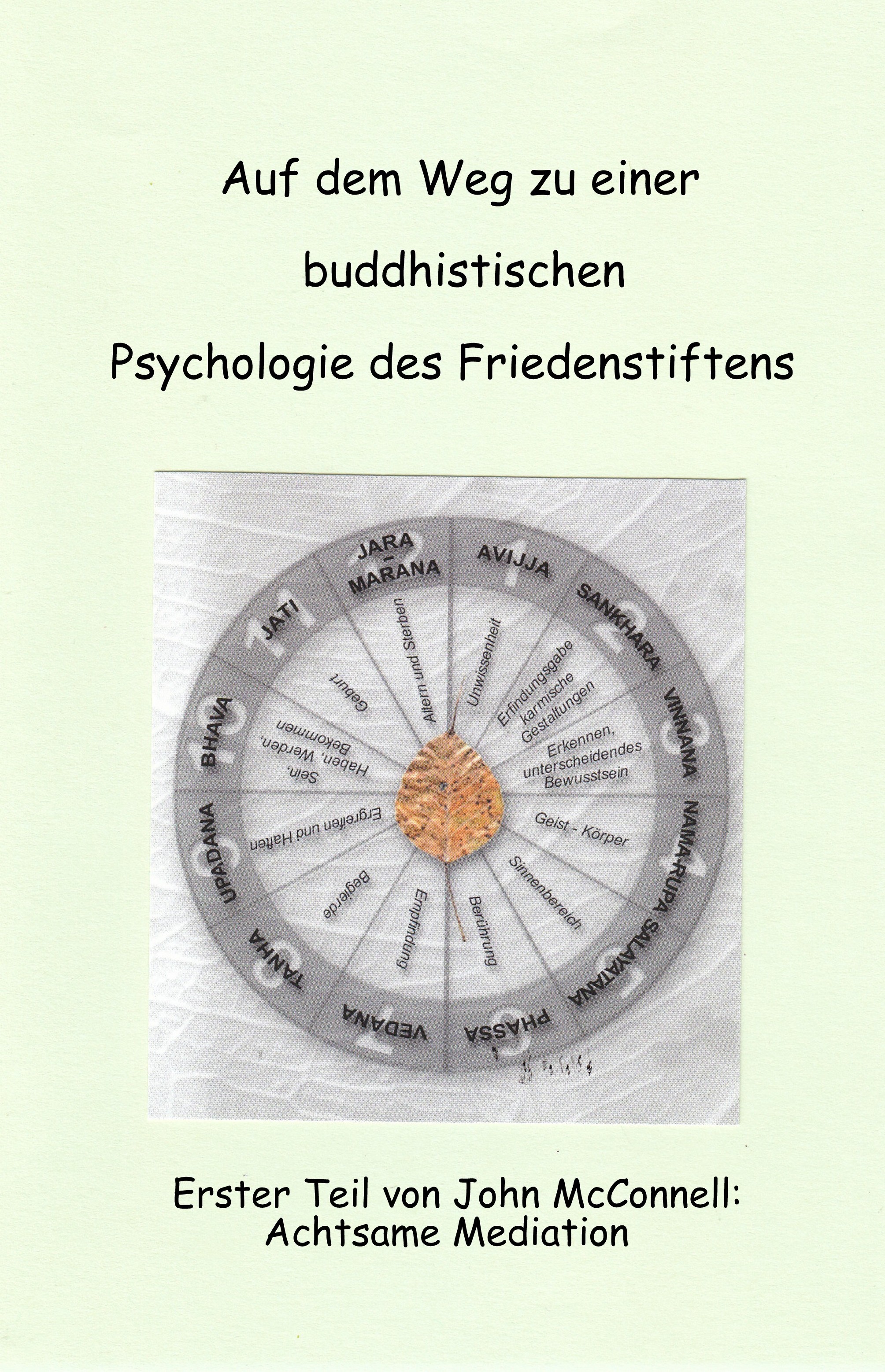
John Dear, Gewaltfrei leben
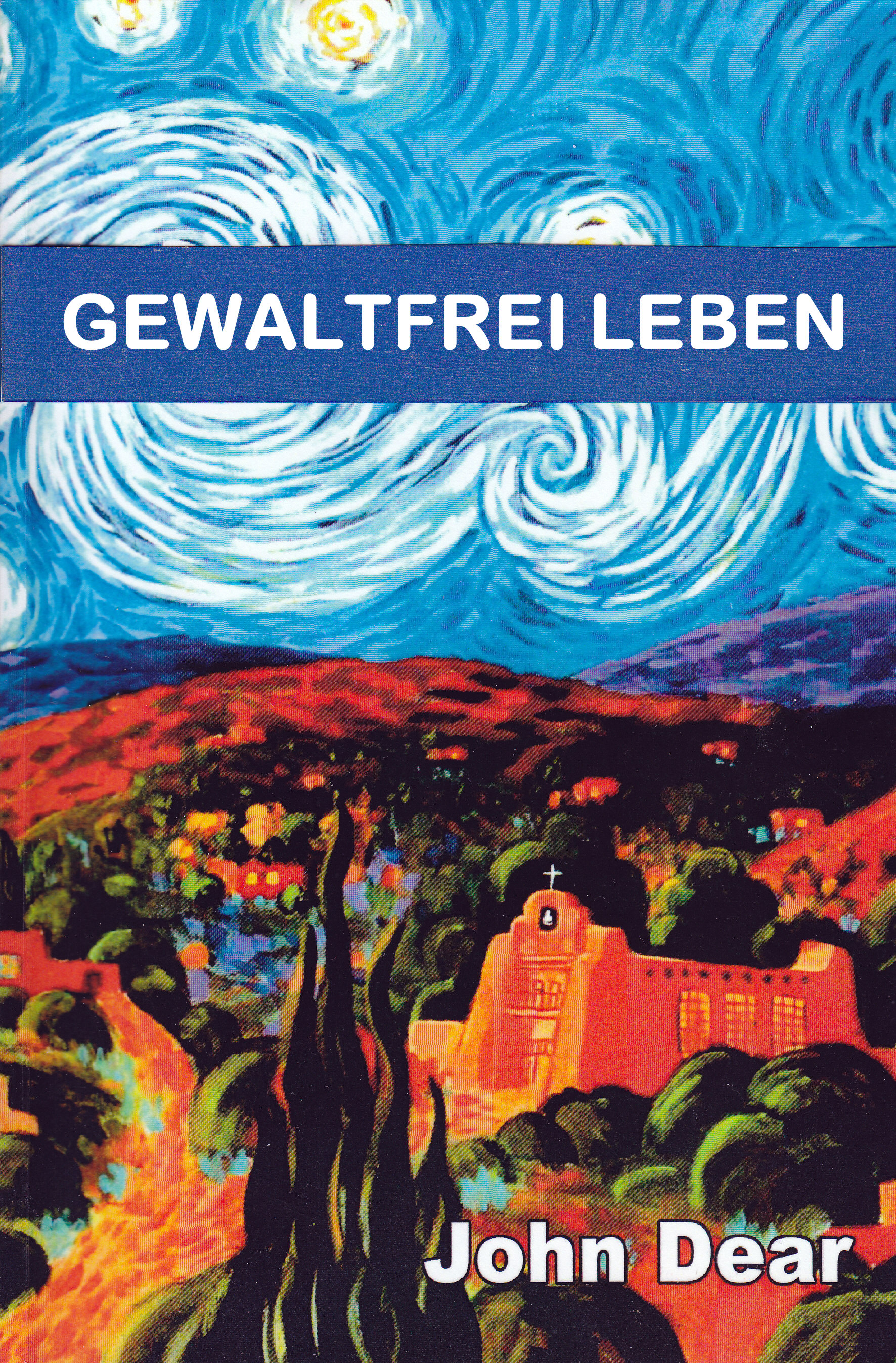
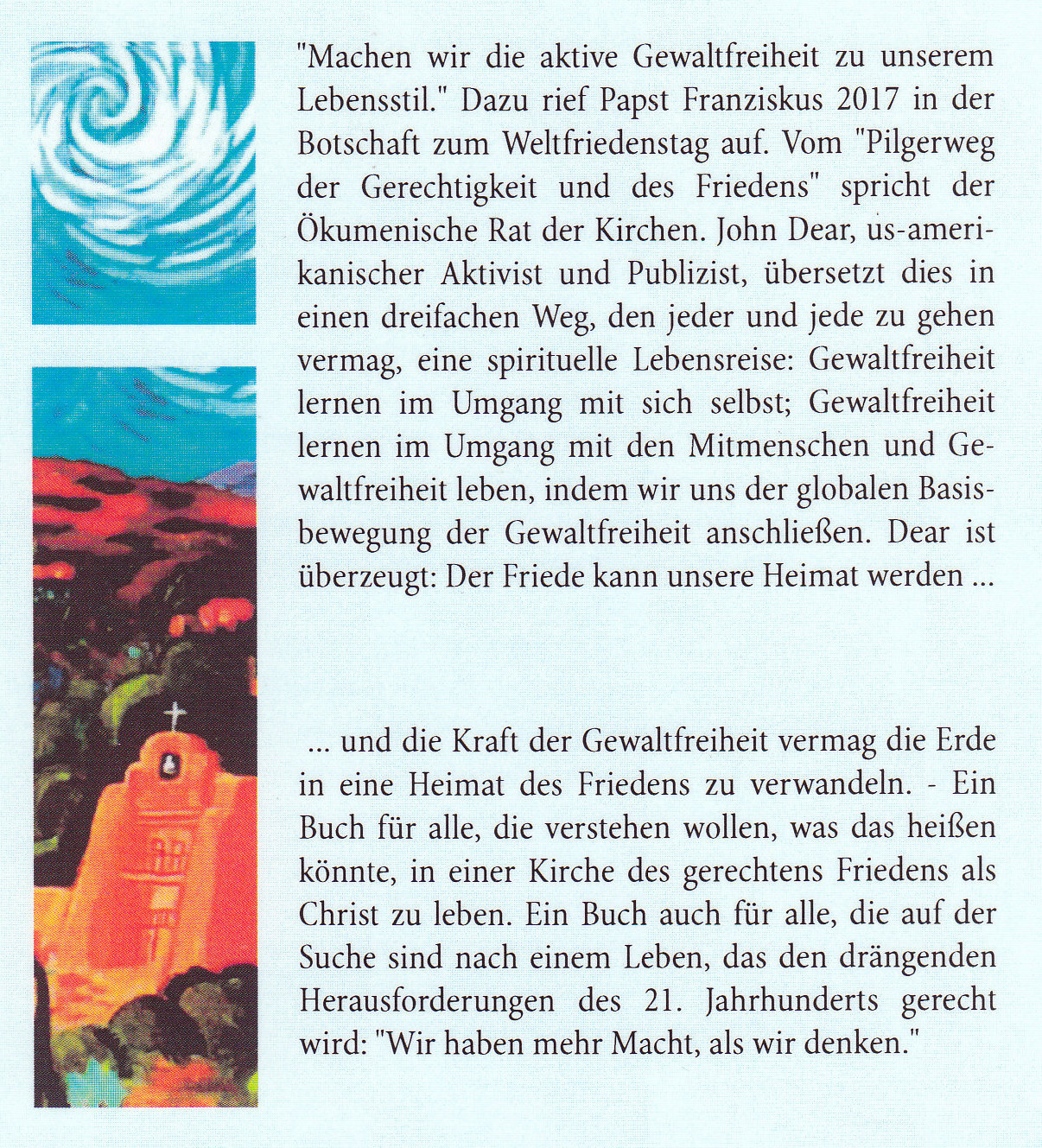
Herausgegeben in Kooperation mit dem Ökumenischen Institut für Friedenstheologie
Titel der US-amerikanischen Originalausgabe:
The Nonviolent Life, by John Dear
Published by Pace e Bene Press, 2013
Umschlaggraphik nach der US-Originalausgabe:
Cover artwork by Carmelita Laura Valdes Damron
Hier zu beziehen.
Gebet am Ende des Buches:
Gott des Friedens, wir danken dir dafür, dass du uns zu einem Leben der Gewaltfreiheit einlädst, dazu, Friedensstifter und deine geliebten Söhne/Töchter zu werden.
Schenke mir die Gnade, gewaltfrei mit mir selbst umzugehen, mit mir selbst Frieden zu schließen, den Geist des Friedens in meinem Innern willkommen zu heißen und als Person deine friedvolle Gegenwart auszustrahlen.
Schenke mir die Gnade, gewaltfrei mit anderen, allen Geschöpfen und der gesamten Schöpfung umzugehen, sodass ich alle als meine Geschwister liebe und zum Schutz der Menschheit, deiner Geschöpfe und der gesamten Schöpfung beitrage, damit dein Friedensreich zur lebendigen Realität wird.
Und schenke mir die Gnade, deinen
globalen Basisbewegungen der Gewaltfreiheit zu dienen, sodass ich meinen Teil dazu
beitragen kann, Krieg, Armut, Rassismus, Sexismus, Atomwaffen, strukturelle Ungerechtigkeit und Umweltzerstörung zu beenden, dass immer mehr Menschen die Weisheit der Gewaltfreiheit in sich aufnehmen werden und fleißig für Abrüstung und Gerechtigkeit arbeiten, sodass eines Tages überall auf Erden dein Frieden verwirklicht werden mag.
Ich danke dir, Gott des Friedens, für alle Segnungen des Friedens, der Hoffnung, des Lebens und der Liebe, die du mir gibst. Mache du mich zu einem Werkzeug deines Friedens und ich biete dir zu deinem größeren Ruhm die Gabe eines gut geführten
gewaltfreien Lebens an.
Amen.
Vorstellung des Buches bei Lebenshaus-Alb
Dort auch der neue Artikel von John Dear: Fortgesetzter Appell für die Abschaffung der Atomwaffen in Los Alamos
Uri Avnery: Letzte Artikel. Januar bis August 2018
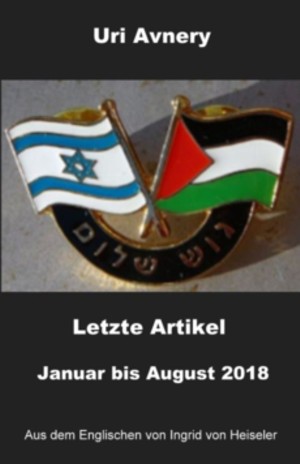
In memoriam
Über das Buch
Viele Jahre lang schrieb Uri Avnery wöchentliche Artikel, in denen er meist Ereignisse in Israel beleuchtete. In vielen davon bezog er das aktuelle Geschehen dort auf Ereignisse in der Geschichte oder brachte es mit eigenen Erlebnissen in Zusammenhang. Die Artikel erschienen in mehreren Ländern in der jeweiligen Landessprache, darunter auch in Deutschland. Seit Februar 2012 brachten Websites diese Artikel auch in der Übersetzung von Ingrid von Heiseler. Seit 2013 sind die Artikel in Jahresbänden als Bücher erschienen: vier als Papierbücher und drei als eBücher. Der Band Letzte Artikel schließt die Reihe ab.
In den Artikeln zeigt sich der Autor als engagierter, zugleich immer auch besonnener, genauer Beobachter seiner Umwelt, als einer, der den Mut nicht verloren hat, als, so nennt er sich selbst, „Optimist“. Trotz Optimismus und Humor bleibt die Bedrohlichkeit der Gesamtsituation immer spürbar.
Das Buch ist als eBuch und als Taschenbuch erhältlich und es ist als pdf in der Deutschen Nationalbibliothek erhältlich.
Über den Verfasser
Uri Avnery wurde am 10. September 1923 in Beckum in Westfalen geboren und starb am 20. August 2018 in Tel Aviv in Israel. 1933 wanderten seine Eltern mit ihm und seinen Geschwistern nach Palästina aus. Dort kämpfte er seit früher Jugend für die Befreiung von der britischen Besatzung und gegen arabische Kämpfer. Nach einer schweren Verwundung änderten sich seine Anschauungen grundsätzlich. Mit Büchern und seiner Zeitung HaOlam HaZeh setzte er sich für die Verständigung zwischen Israelis und palästinensischen Arabern und später für die Zweistaatenlösung ein. Das brachte ihm viele Feindschaften, ja sogar Mordanschläge ein. Er nahm in vorderster Front an Demonstrationen teil, in denen es im auf die jeweilige Situation bezogenen Sinn um die Durchsetzung der Menschenrechte ging. Später führte er diese Arbeit mit der Bewegung Gusch Schalom fort. Sein letzter Artikel erschien in Haaretz am 7. August, am selben Tag, an dem er einen Schlaganfall erlitt. Bis zu seinem Tod zwei Wochen danach kam er nicht wieder zu Bewusstsein.
Uri Avnery auf dieser Website: Artikel 2012 bis 2018 & “Texte zur Person”
Die Jahrgänge
2012
2013
2014
2015
2016
2017
2018 Letzte Artikel. Januar bis August 2018 als eBuch und als Taschenbuch
– Zur Person. Texte von und über Uri Avnery
Meine Übersetzungen von Uri Avnerys Artikeln vom 30.07.2013 bis zum 04.08.2018 finden sich in chronologischer Reihenfolge hier. Die Artikel vom 12. Februar 2012 bis zum 23. Juli 2013 sind unter den hier angeführten Jahren als pdf zu finden.
Damit sind alle meine Übersetzungen von Uri Avnerys Artikeln direkt zugänglich.
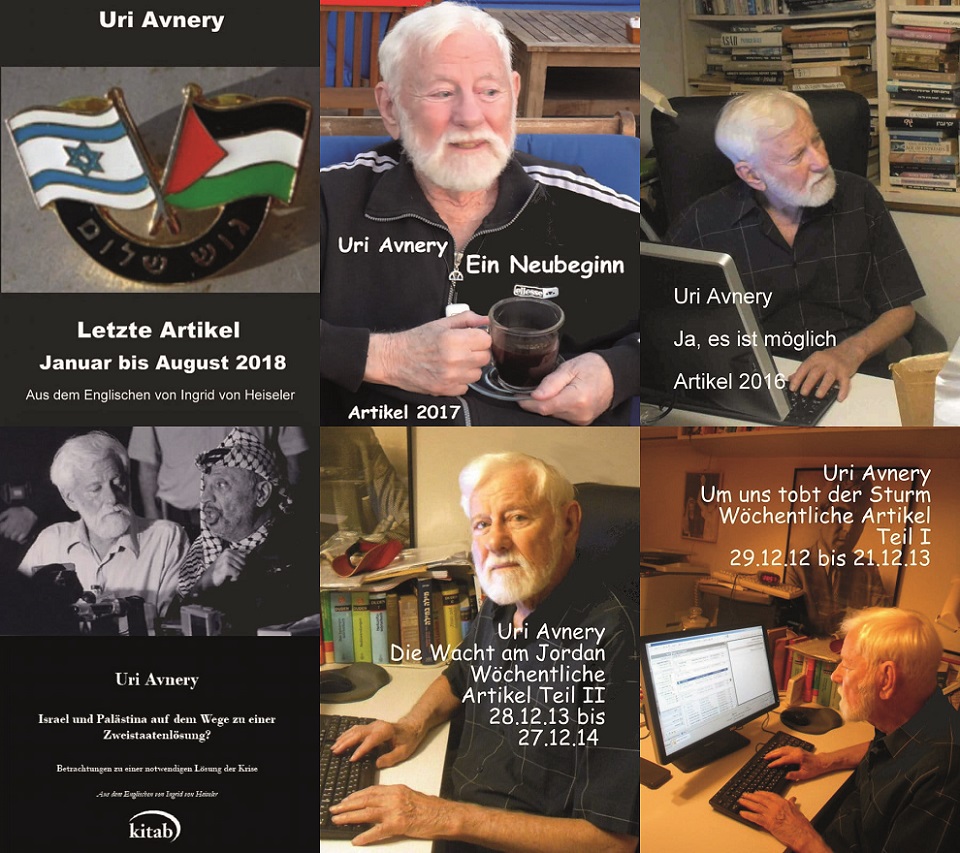
Rivera Sun, Der Löwenzahnaufstand
Liebe und Revolution. Roman
Aus dem Englischen von Ingrid von Heiseler
Da die Autorin darauf bestanden hat, es (mit Create Space) in den USA zu veröffentlichen, ist es leider sehr teuer geworden.
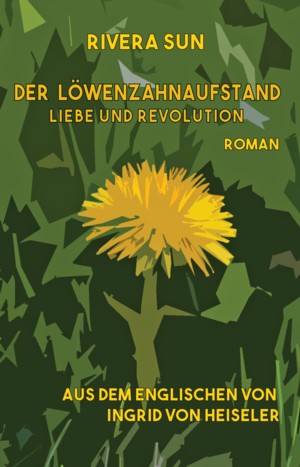
Der Löwenzahnaufstand spielt „in einer Zeit – von heute aus gleich um die Ecke“ in den USA. Die Protagonisten Sadie Byrd Gray und Charlie Rider setzen Leib und Leben für die Wiederherstellung der Demokratie gemäß der Bill of Rights ein: „Der Löwenzahnaufstand“, sagte Charlie, „ist die letzte Hoffnung, die uns bleibt, da unsere Demokratie im Griff der heimlichen Diktatur erwürgt wird. Er ist die Weigerung, sich von Furcht und Gier zu Tode quetschen zu lassen. Stattdessen müssen wir handeln, wenn wir leben wollen!“ (3. Kapitel) Die von der Wirtschaft unterwanderte Regierung hat unter dem Vorwand des „Kampfes gegen den Terrorismus“ im
Innern unter anderem die Rede- und Versammlungsfreiheit
aufgehoben. Die hohen Militärausgaben für den „Kampf gegen den
Terrorismus“ in der übrigen Welt dienen als Vorwand dafür, die
„Armen“ hungern zu lassen, während sich eine schmale
Eliteschicht mästet.
Rivera Sun erzählt die Geschichte einer gewaltfreien Revolution, in der Werkzeuge und Strategien angewandt werden, die im Laufe der Geschichte von vielen Führern, darunter Gandhi, Martin Luther King und Gene Sharp, entwickelt wurden. Damit transportiert sie nicht fiktionale Inhalte in einem fiktionalen Text. Das eröffnet die Möglichkeit, dass weitere Kreise mit den Begriffen und „Techniken“ der Gewaltfreiheit bekannt gemacht werden.
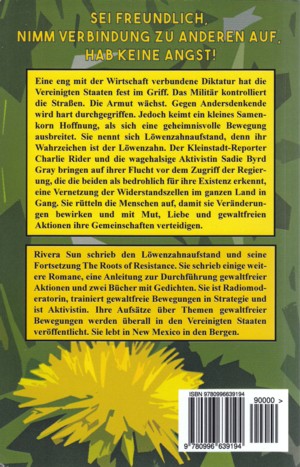
Durch einige Kernsätze wird die – gelegentlich lehrhafte –
Intention des Romans verdeutlicht:
Willst du etwas wirklich Radikales tun? Sei freundlich, nimm Verbindung zu anderen auf, hab keine Angst!
Sei wie der Löwenzahn, wachse in unfruchtbaren Böden, trau dich, gegen Gewalt und Hass aufzustehen, und blühe in Liebe auf.
Wenn Furcht eingesetzt wird, um die Menschen zu beherrschen, dann ist Liebe das, womit wir rebellieren.
Worte eines alten Mannes: „Leben, Freiheit und Liebe? Wer wird dafür eintreten?“
Der Löwenzahnaufstand ist so klein wie ein Brot, das im Ofen gebacken wird, und so groß, dass er Diktatoren stürzen kann.
Arbeitsprinzipien: create, copy, improve, and share: schaffen, kopieren, verbessern und
weitergeben
Ein realistisch gefärbtes Märchen
John Dear: Ein Mensch des Friedens und der Gewaltfreiheit werden
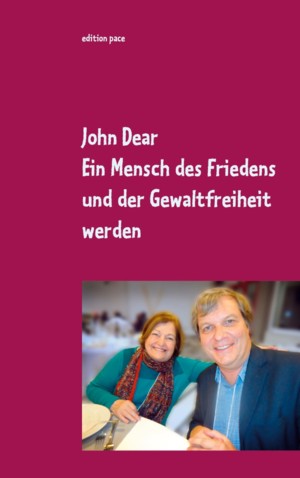
Das Imperium des Todes ließ Jesus von Nazareth nach der dem Imperium eigenen
Ordnung ‚rechtmäßig hinrichten‘ und sein Grab durch Soldaten versiegeln. Jesus aber
missachtete das imperiale Amtssiegel und die Militärwache, verließ das Grab und stiftet seit nunmehr zweitausend Jahren Menschen auf dem ganzen Erdkreis zum Aufstand gegen den Tod an.
Zu diesen Menschen zählt auch der US-amerikanische Priester, Autor und Friedens-aktivist John Dear. Aufgrund seines zivilen Ungehorsams wider das „Imperium“
todbringender Mächte wurde er mehr als 75 Mal inhaftiert. Von seinen über 30 Buchveröffentlichungen liegen Übersetzungen in zehn Sprachen vor. Zum diesjährigen Osterfest (2018) wird dem deutschsprachigen Lesepublikum erstmals eine repräsentative Textauswahl angeboten.
Ausgewählte Aufsätze und Reden.
Übersetzt von Ingrid von Heiseler, ausgewählt & herausgeben von Thomas Nauerth, mit einem Vorwort von Peter Bürger. Norderstedt: BoD 2018. ISBN: 978-3-7460-8898-3
[168 Seiten; Preis 6,99 Euro]
Bestellmöglichkeit finden Sie hier. Hier können Sie auch “einen Blick ins Buch” werfen.
John Dear ist kath. Priester (Ordination 1993) und war Direktor des Versöhnungsbundes (Fellowship of Reconciliation, USA). Nach dem 11. September 2001 gehörte er zu den Rote-Kreuz-Koordinatoren der Geistlichen im Family Assistance Center und beriet Verwandte der Opfer und Rettungskräfte. Er arbeitete in Obdachlosenunterkünften, Suppenküchen und Gemeindezentren; er reiste in Kriegsgebiete in aller Welt, darunter Irak, Palästina, Nicaragua, Afghanistan, Indien und Kolumbien. Er lebte in
El Salvador, Guatemala und Nordirland.
Er saß wegen einer Plowshares-Entwaffnungsaktion acht Monate im Gefängnis.
John Dear hat zwei Master-Abschlüsse in Theologie von der Graduate Theological Union in Kalifornien und lehrte Theologie an der Universität in Fordham, New York City. Er zählt zu den Mitarbeitern von “Pace e Bene”, “peace + all good” in Corvallis in Oregon. Er gehörte bis 2014 dem Jesuitenorden an und wurde dann Priester der Diözese von Monterey in Kalifornien.
Pyarelal: Eine Pilgerreise für den Frieden
Gandhi und Badshah Khan bei den Pathanen der Nordwestgrenzprovinz
Pyarelal1.12.17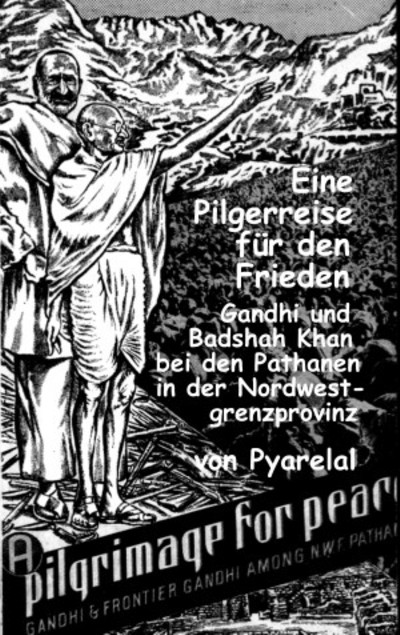
Über das Buch (an die Einführung Pyarelals angelehnt)
Der Sekretär Gandhis, der sich nur mit seinem Vornamen Pyarelal nennt, berichtet über Gandhis vierwöchige Reise in Gesellschaft Khan Saheb Abdul Ghaffar Khans durch die Nordwestgrenzprovinz im Herbst 1938. Er stellt das gute Einvernehmen und die aufopfernde Fürsorge des Gastgebers für seinen Gast ausführlich dar.
In der Nordwestgrenzprovinz musste Gandhi Menschen die Gewaltfreiheit erklären, deren gesamte Geschichte der letzten zweitausend Jahre in entgegengesetzte Richtung verlaufen war. Gewaltfreiheit war das genaue Gegenteil von dem, was die Paschtunen traditionell praktizierten.
Gandhis Reise stand unter dem Schatten der Münchener Krise. Das verlieh seinen Äußerungen internationale Brisanz. Gandhi meinte, seine Botschaft könne weltweit umgesetzt werden.
Einige behaupten, dass Gewaltfreiheit als Waffe nur in dem Fall von Nutzen sein könne, wenn die Macht, die es zu bekämpfen gelte, empfänglich für einen moralischen Appell sei. Wenn zum Beispiel die deutschen Juden ihre Zuflucht zu Satyagraha genommen hätten, hätte sie das nicht vor dem Tod retten können.
Die das sagen, scheinen zu vergessen, dass die Wirkung der Gewaltfreiheit nicht von der Duldung des Tyrannen abhängt. Sie ist von seinem Willen unabhängig. Sie wirkt durch sich selbst.
Während ahimsa des Einzelnen nicht von seiner Umgebung abhängt und überall praktiziert werden kann, verlangt eine gewaltfreie Ordnung ein besonderes sozio-ökonomisches Umfeld.
Wie würden Geist und Antlitz einer Gesellschaft aussehen, die sich auf Gewaltfreiheit gründete? Wie Gandhi und Badshah Khan sich darum bemühten, diese den Herzen der Khudai Khidmatgar in der Nordwestgrenzprovinz einzupflanzen, wird hier dargestellt. „Die Leserin möge über die innerliche Bedeutung und Bedeutsamkeit dieses Experiments nachdenken und für sich selbst entscheiden, ob es sich nicht vielleicht lohne, dafür zu leben und zu sterben.“
Auch in der Deutschen Nationalbibliothek als PDF zugänglich.
Uri Avnery: Ein Neubeginn
Artikel 2017
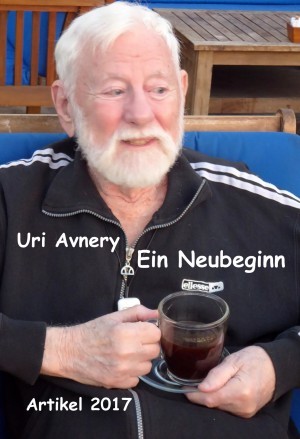
Uri Avnerys Stimme ist eine Stimme des Friedens und der Vernunft.
In seinen wöchentlichen Artikeln stellt er geografische und vor allem historische Zusammenhänge heraus. Seine bei aller Kritik an Entscheidungen seiner Regierung von der Liebe zu seinem Land geprägte Darstellung weckt Verständnis für die aktuellen Ereignisse in der Region, die Mentalität der Israelis und die
politische Stimmung im Land.
Uri Avnerys Artikel erweisen sich auch als hilfreich für das
Verständnis der (eigentlich immer) unübersichtlichen welt-politischen Ereignisse und Situationen: Sein unbestechlicher Blick in die jeweilige GESCHICHTE – oft aus den unterschiedlichen
Perspektiven der Beteiligten – scheint dafür unerlässlich zu sein.
Tiefe der Analyse, Treffsicherheit des Ausdrucks und Humor
erheben die Artikel über die Tagesaktualität ihrer Themen in
Allgemeingültigkeit und Zeitlosigkeit.
Der Autor zeigt sich als engagierter, zugleich immer auch besonnener, genauer Beobachter seiner Umwelt, als einer, der den Mut nicht verliert, als – so nennt er sich selbst – „Optimist“.
Uri Avnery ist Weltbürger und schreibt daher immer ebenso für seine Landsleute wie für die Menschen in der übrigen Welt.
Zugänglich ist der Band als eBuch, als PDF in der Deutschen Nationalbibliothek und als Taschenbuch.